Why Catholic sisters sold land back to the Lac du Flambeau
Confronting the painful legacy of Indian boarding schools, an order of Catholic sisters sold a plot on Trout Lake in northern Wisconsin to the Lac du Flambeau tribe as part of the land back movement.
By Erica Ayisi | Here & Now, ICT News
November 13, 2025 • Northern Region
An order of Catholic sisters sold a plot on Trout Lake to the Lac du Flambeau tribe.

This report is in collaboration with our partners at ICT, formerly Indian Country Today.
Signed, sealed and delivered — the Franciscan Sisters of Perpetual Adoration are the first known Catholic order of sisters to transfer land to its original Native American owners in an act of reparations for colonization during the federal Indian boarding school era.
We — FSPA — have been exploring what it means to unveil our white privilege, including the responsibility that comes with the privilege,” said Sue Ernster, president of the order. She said the sisters acknowledge their dark legacy of colonialism — through truth and healing and a land transfer — of their Marywood Franciscan Spirituality Center to the Lac Du Flambeau Band of Lake Superior Chippewa Indians.
“We’ve become aware of how we’ve been complicit and have benefited from the systems that have kept others out, such as the Lac Du Flambeau,” Ernster said.
Lac Du Flambeau children attended the St. Mary’s Indian boarding school in Odanah — which the FSPA operated for 86 years — during a period when the United States government removed Native American children from their families and forcibly assimilated them into Euro-American Catholic culture.
Does giving land back to Native Americans reconcile the past?
“It’s a step,” Ernster added. “It does not fully reconcile. There’s nothing I believe that can fully reconcile for the trauma that has been inflicted over these years.”
Ernster said when the sisters realized that they no longer needed their center, they collaborated with Brittany Kotelis of Land Justice Futures to learn how to incorporate land justice into their reckoning.
“We knew it was the time to reignite the relationship with the Lac du Flambeau and see if they would be interested in purchasing the property,” Ernster said. “This is not a market-rate transaction. It’s a ‘land back’ — the tribe is paying $30,000 for the property.”
The FSPA purchased the property for $30,000 in 1966.
John Johnson, president of the Lac Du Flambeau tribal government, says his counter offer was $1.
“I just asked them, I said ‘How did you get our land?'” Johnson said. “And I don’t mean mine, per se, or my tribe, but every Ojibwe person in the state of Wisconsin.
The Lac Du Flambeau ceded — or gave up — their land to the federal government in the 1854 Treaty of La Pointe.
Johnson said the tribe’s business department felt $30,000 was fair, considering the property’s current market value.
“When I first heard, it was like $2.6 million,” he said. “And then I heard it was, you know, they had to offer $3 million — and the price could have kept going up and up and up.”
Marywood is nearly two acres — including an office, lodge and cabins — situated along Trout Lake in Vilas County north of Woodruff.
“As you look out onto these islands out here, those were once inhabited by all of our relatives here,” Johnson said. “There are families in Lac du Flambeau that were raised on them islands.”
Giving this land back to its original Native American owners presents challenges. It’s situated just outside the Lac du Flambeau reservation, subjecting it to taxation.
“There’s also processes that tribes can place that land into trust and protect it from taxation,” said Philomena Kebec, a tribal attorney and enrolled member of the Bad River Band of Lake Superior Chippewa. She said the process can be complex.
“The fee to trust application can be opposed by municipalities,” Kebec explained.
For now, Larry Turner of the Lac Du Flambeau Business Development Corporation said they’re not expecting to make a profit from the land transfer and will use the property for professional housing.
“We have such a huge shortage of professionals in the tribe, including traveling nurses, doctors for the clinic, management for the Business Development Corp, and there’s no rentals up here,” said Turner.
Johnson said he also wants to use their reclaimed land to sustain their Ojibwe culture to future generations.
“Out on the lake here in the winter time, we’re going probably set up a tent or something, and do some spearing here in the winter for muskellunge,” he said.
The FSPA’s former Indian boarding school was demolished and is now St. Mary’s Parish on the Bad River tribal reservation.
In documents acquired by ICT, the Catholic church was given at least 10,000 acres of land by the federal government to operate Indian boarding schools across the country, including three in Wisconsin.
Although the Catholic Diocese of Superior said all of its land is currently in use and unavailable for land transfers to tribes, the FSPA said their land transfer is about reckoning and reclamation for the Lac du Flambeau.
“What is it we can learn from this so that we can to move forward?” Ernster asked.
“All this land that you see around here should be rightfully ours anyway,” said Johnson.
This report is in collaboration with our partners at ICT.
 Passport
Passport




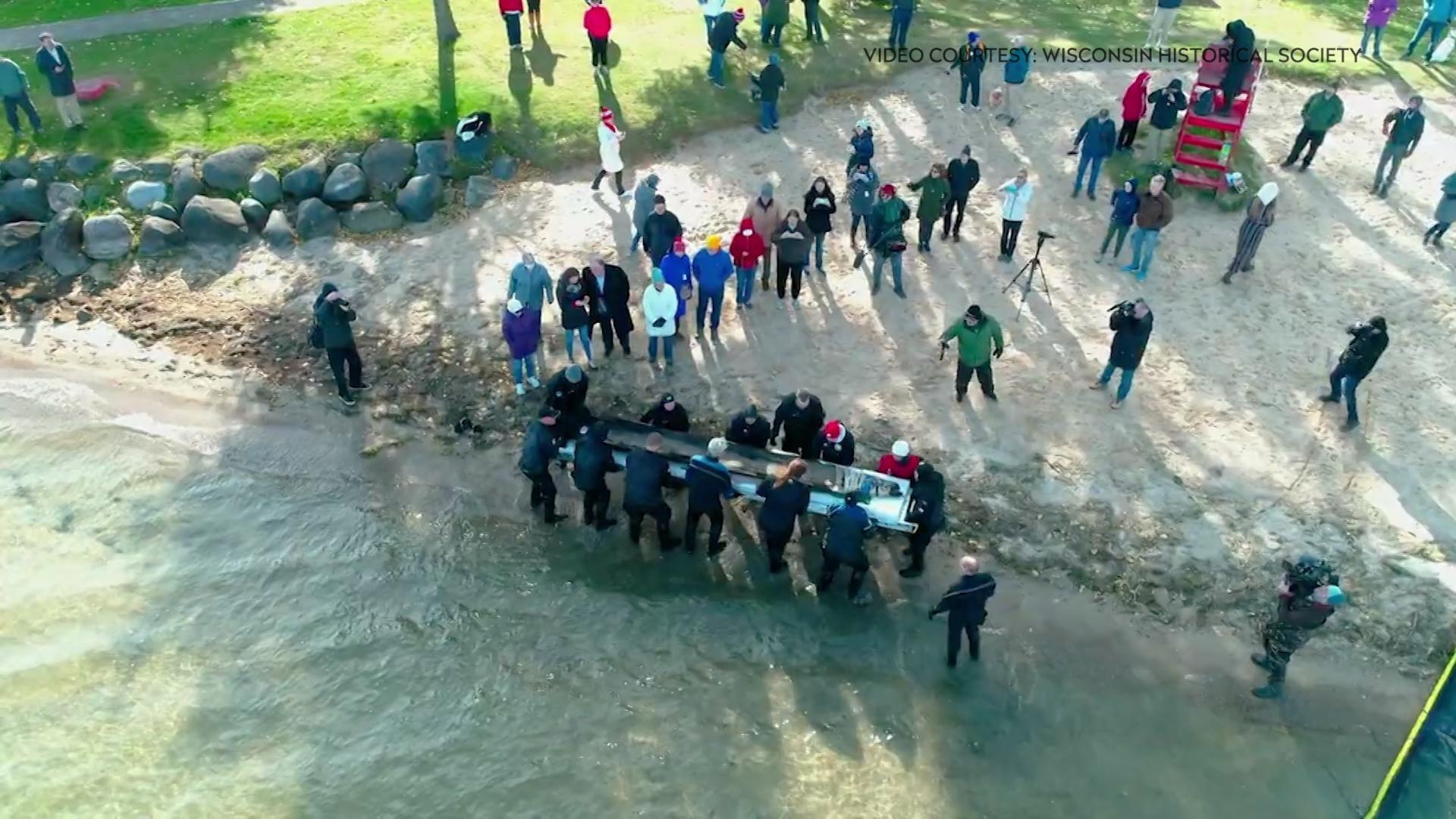
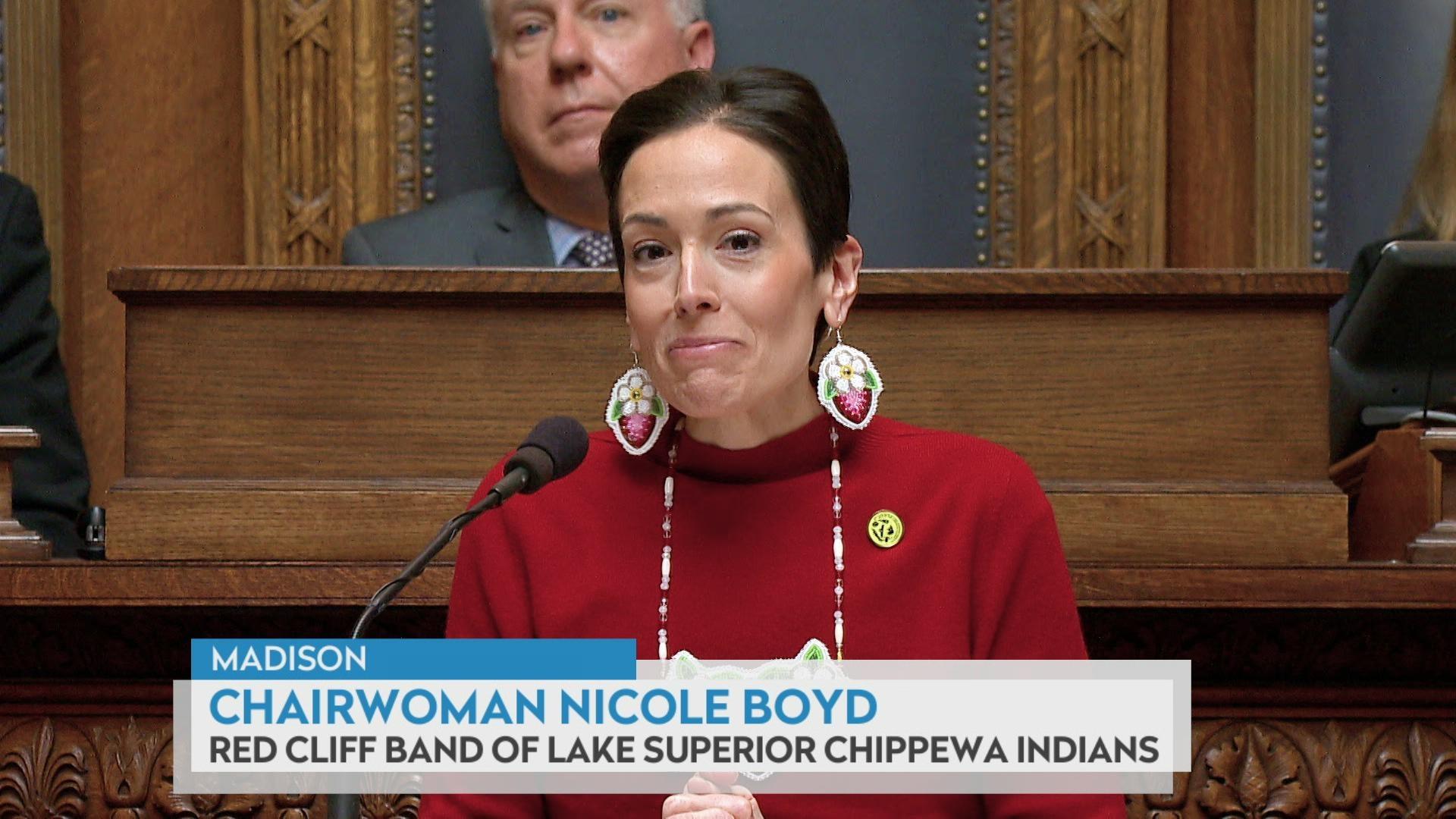
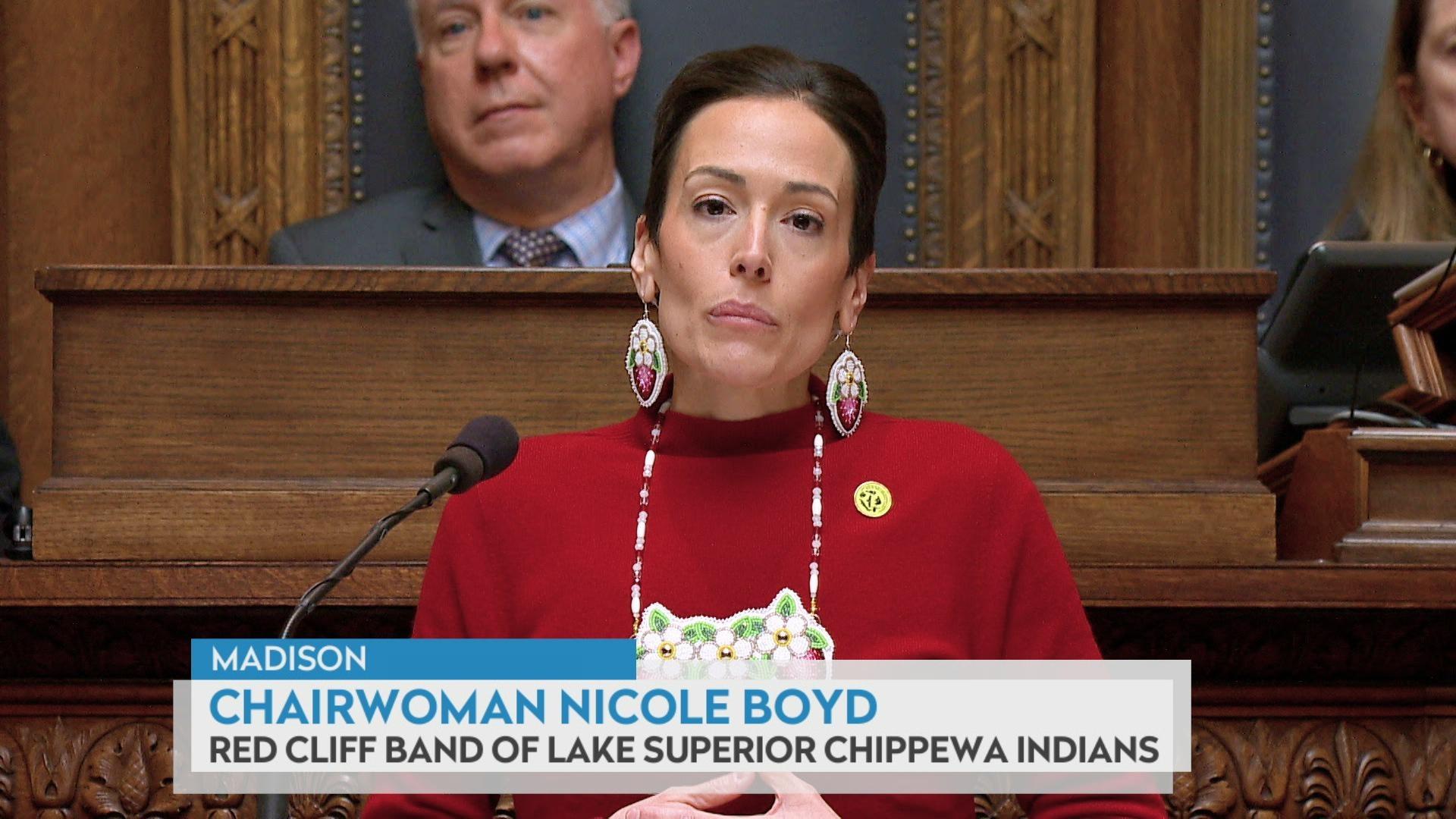
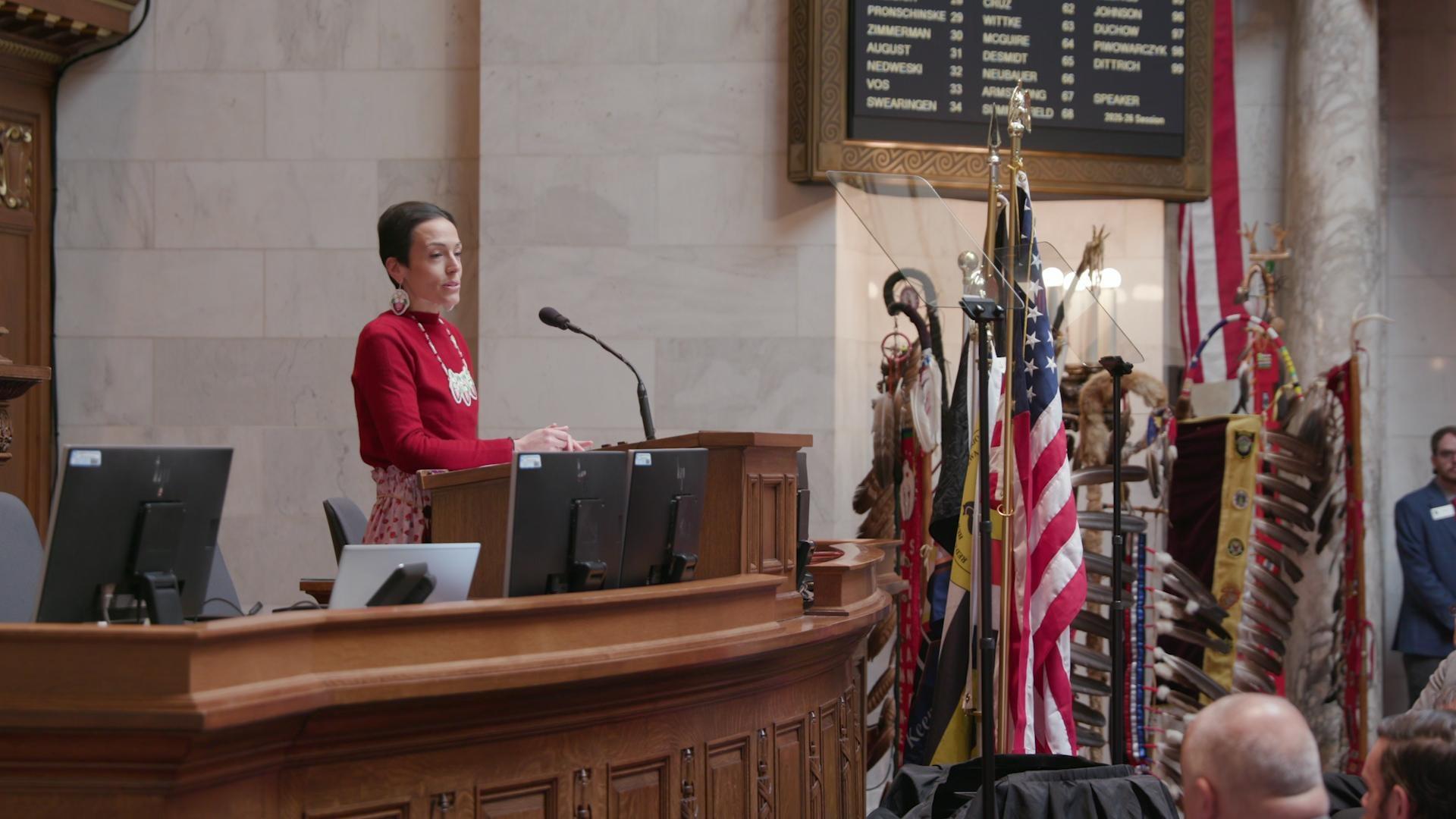
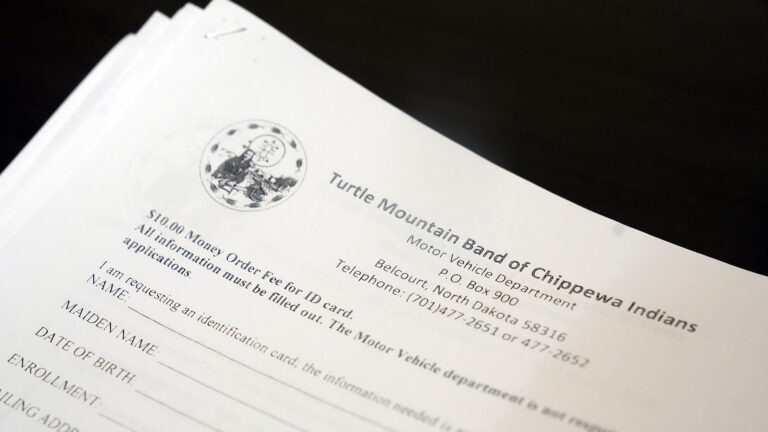
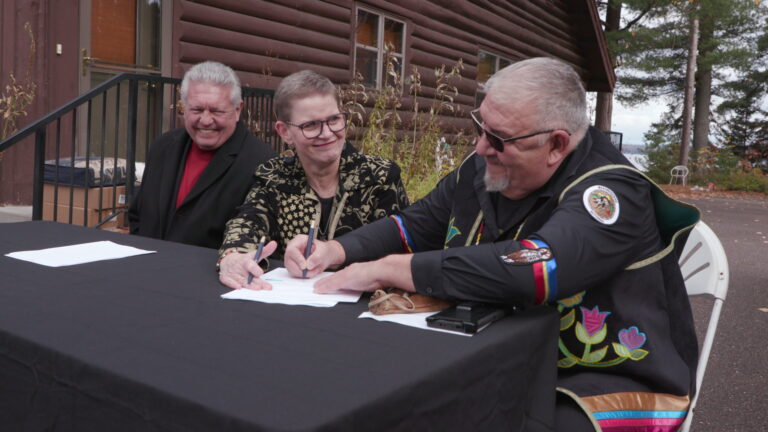

Follow Us